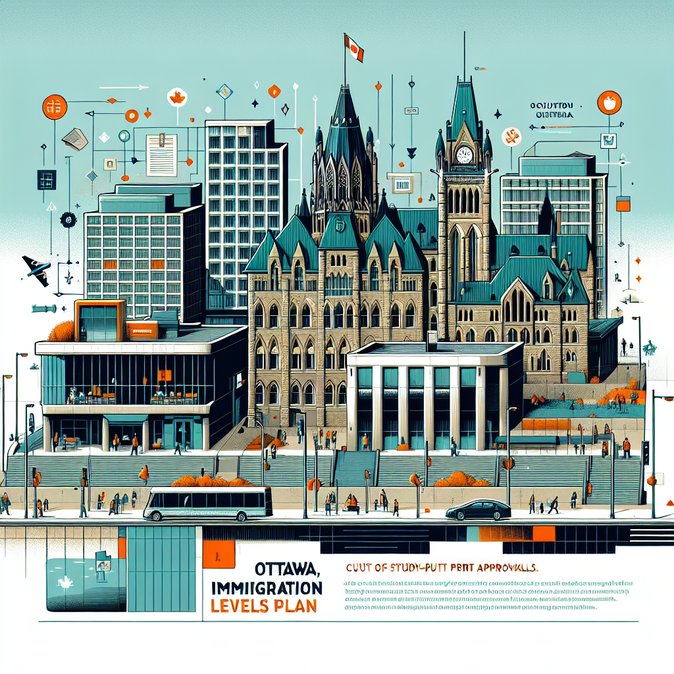
Indian media reports sparked global attention on 23 November 2025 after Ottawa’s freshly tabled 2026–28 Immigration Levels Plan confirmed a dramatic recalibration of Canada’s temporary-resident programs. Headlines focused on the government’s decision to cap new study-permit approvals at 155,000 in 2026—roughly 50 % below 2025 levels—and introduce sector-based permanent-residence (PR) pilots for 33,000 temporary workers, including H-1B holders migrating north from the United States.
The move comes amid mounting pressure on housing, health care, and infrastructure in major student hubs such as the Greater Toronto Area, Metro Vancouver and Halifax. International students accounted for 7.5 % of Canada’s population in 2024, double the share five years prior. By tightening study-permit issuance—particularly at the undergraduate level—IRCC aims to bring the temporary-resident population below 5 % by 2028 while still courting master’s and PhD candidates who feed the country’s innovation pipeline.
![Canada’s new immigration levels plan will slash study-permit approvals by half]()
At the same time, Ottawa seeks to retain experienced foreign workers already in Canada. New occupation-specific PR pathways will target construction and agriculture workers, high-skilled tech professionals and H-1B visa holders displaced by U.S. layoffs or green-card backlogs. Successful applicants could receive expedited PR within 12 months, according to draft briefing notes shared with provinces.
For Canadian universities and colleges, the cap represents an existential pivot. Institutions that built revenue models around rapidly expanding international enrolment—especially lower-tier private colleges—must now re-tool recruitment strategies and bolster compliance to avoid losing coveted Designated Learning Institution status. Businesses, meanwhile, should brace for leaner co-op talent pools and adapt internship programmes accordingly.
Global-mobility teams should note that spouses of capped undergraduate students will retain open work-permit eligibility, but processing volumes and backlogs may grow as IRCC reallocates resources. Companies relying on the Post-Graduation Work Permit as a talent pipeline should engage earlier with high-potential graduates to secure employer-specific LMIA-exempt permits or consider provincial nomination options.
The move comes amid mounting pressure on housing, health care, and infrastructure in major student hubs such as the Greater Toronto Area, Metro Vancouver and Halifax. International students accounted for 7.5 % of Canada’s population in 2024, double the share five years prior. By tightening study-permit issuance—particularly at the undergraduate level—IRCC aims to bring the temporary-resident population below 5 % by 2028 while still courting master’s and PhD candidates who feed the country’s innovation pipeline.

At the same time, Ottawa seeks to retain experienced foreign workers already in Canada. New occupation-specific PR pathways will target construction and agriculture workers, high-skilled tech professionals and H-1B visa holders displaced by U.S. layoffs or green-card backlogs. Successful applicants could receive expedited PR within 12 months, according to draft briefing notes shared with provinces.
For Canadian universities and colleges, the cap represents an existential pivot. Institutions that built revenue models around rapidly expanding international enrolment—especially lower-tier private colleges—must now re-tool recruitment strategies and bolster compliance to avoid losing coveted Designated Learning Institution status. Businesses, meanwhile, should brace for leaner co-op talent pools and adapt internship programmes accordingly.
Global-mobility teams should note that spouses of capped undergraduate students will retain open work-permit eligibility, but processing volumes and backlogs may grow as IRCC reallocates resources. Companies relying on the Post-Graduation Work Permit as a talent pipeline should engage earlier with high-potential graduates to secure employer-specific LMIA-exempt permits or consider provincial nomination options.











